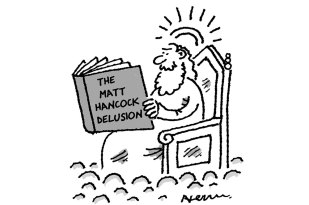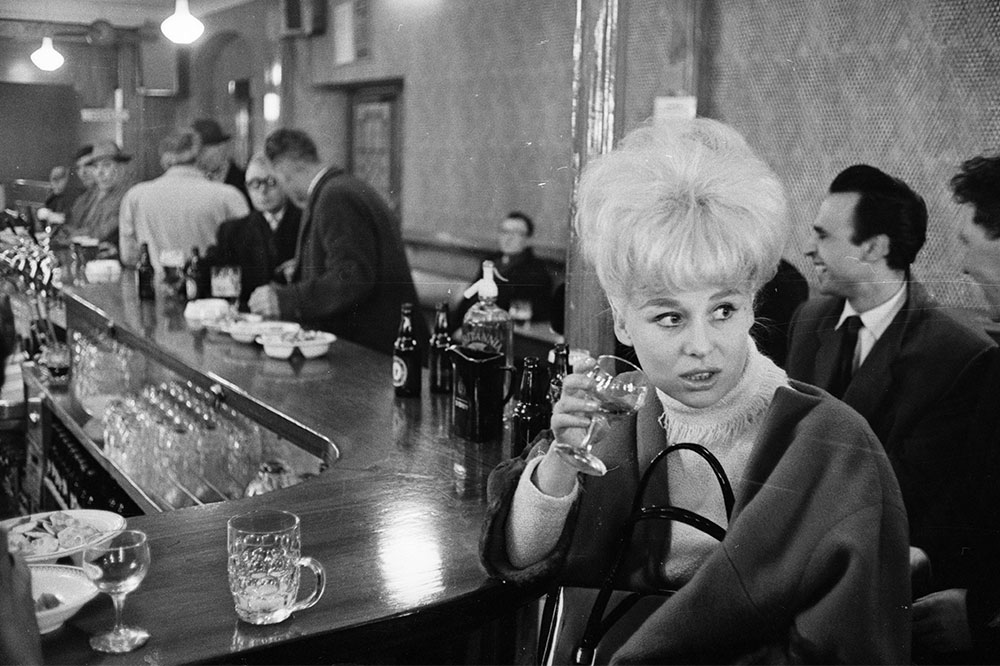Christopher Howse has narrated this article for you to listen to.
Cockney is dead, but so is the King’s English. Long live Standard Southern British English. The Cockney Barbara Windsor yelling ‘Ge’ aah-a my pub’ is as fossilised as Eliza Doolittle. And what a shock it is today to hear the late Queen, aged 21, declare: ‘My whole life whether it be long or short shall be devoted to your service and the service of our great imperial family.’ She seems to say devated, sairvice and end (for ‘and’).
Now a study from the University of Essex has put the accents of London and the south-east into the laboratory and shown that three are dominant: Estuary English (replacing Cockney), Standard Southern British English (replacing the monarch’s way of speaking, otherwise known as Received Pronunciation) and, coming up in a gap between, Multicultural London English.
‘Class is not an important linguistic predictor for young people in south-east England’
The authors, Dr Amanda Cole and Dr Patrycja Strycharczuk, sensibly enough note that accents don’t depend entirely on sounds. They are held together by social forces. But in The Search for Linguistically Coherent Accents they pinned down the accents of 193 linguistic guinea pigs, partly by
making them read out little lists of words (‘toad, held, though, falling’ or ‘hot, together, gone, thick’).
The three accent clusters emerged through analysis of the diphthongs – as might be expected, if you think of the Cockney way of pronouncing mouth as maaf (though this also incorporates f for th, also a trait of Multicultural London English as used by good old Stormzy: ‘It’s a kind of rapper fing, innit’). Drs Cole and Strycharczuk haven’t discovered these new accents; but they have given them a phonetic standing.
So why has Received Pronunciation (RP) taken to its deathbed? The Essex study quotes opinions that it is regarded as having a ‘rather dated – even negative – flavour in contemporary British English’ and has an ideological link with ‘the past and the upper class’, which are disapproved of.
It is important to realise, then, that a regional change of accent is partly the choice of the people who speak with it. Just because vowel changes in history can be reduced to iron laws does not mean that change now ignores fashion and emulation.

In the past, Dr Cole has shown that Cockney speakers are regarded as less intelligent than some other white British. Now Cockney has gone the way of the white working class themselves. Contrariwise, RP speakers may feel embarrassed at using an accent identified with public schools. Being a member of Pop – Eton’s body of senior prefects – once reflected popularity; now, like membership of the Bullingdon Club at Oxford, to the outside world it’s more like a mark of Cain. Both groups used RP.
It’s amazing how quickly accents change. In the mid-1990s, Harry Enfield, with Jon Glover as Mr Cholmondley-Warner, was laughing at pronunciations and attitudes of only 50 or 60 years earlier.
We also have to take care not to be misled by old films. The enjoyable Anthony Asquith film of Pygmalion (1938) has the Manchester-bred Wendy Hiller as the Cockney flower girl Eliza saying, ‘I’m too lidey-like to take it ou’ of me maaf,’ as she chews a chocolate. The son of a Hungarian father, Leslie Howard played the RP Professor Higgins as someone who referred to texis and kerridges.
We must be aware, too, that people often tried to speak ‘better’ for the microphone. They deployed a ‘telephone voice’. They wanted to sound of a higher class, whereas that is now widely avoided.
The Essex study acknowledges that the linguistic continuum between Cockney and RP used to parallel the class continuum. But class did not emerge as an important factor in the three new accent clusters. ‘It may be that class is not an important linguistic predictor for young people in south-east England,’ say the authors, ‘or, at least, not for our group of speakers, who were predominantly university students.’
It certainly fits in with the Duke of Sussex’s rebellion against the Palace Firm. Despite an Eton education and service as a British officer, Prince Harry has rejected RP and embraced Standard Southern British English, with a variable sprinkling of glottal stops.
Yet I was surprised to find from the Essex study that white British women were strongly over-represented among speakers of Standard Southern British English rather than the more socially informal Estuary English and Multicultural London English. The reasons for this female bias are complicated by social pressure, by their own aspirations and by conventions of what being a woman entails – do you act in a gendered way, do you behave like a ladette?
There is still plenty of room to be annoyed by other people’s accents. I am infuriated to hear BBC radio trailers employ Multicultural London English markers as a trendy way of speaking. This variety incorporates some vowel sounds from parts of the Caribbean. So price is pronounced prahs or even pras.
But of course not even Stormzy himself is from a Caribbean background, his mother coming from Ghana; he was, however, brought up in South Norwood, where Multicultural London English is the thing.
The Essex study identifies those accents that have thriven, the Japanese knotweed or Himalayan balsam in the garden of speech. But it does not rule out individual or family preservation of local accents. My heart leaps when I hear Cockney tones in the office.
I was brought up in Leatherhead, Surrey, and was aware that Surrey had its own accent, which differed even from that of south London. Our neighbour, a blacksmith, spoke it. If you took a train from London to Brighton and got out at every station you might have found a different accent among the older folk at each stop. But in a multicultural London, Multicultural London English is bound to triumph.






Comments